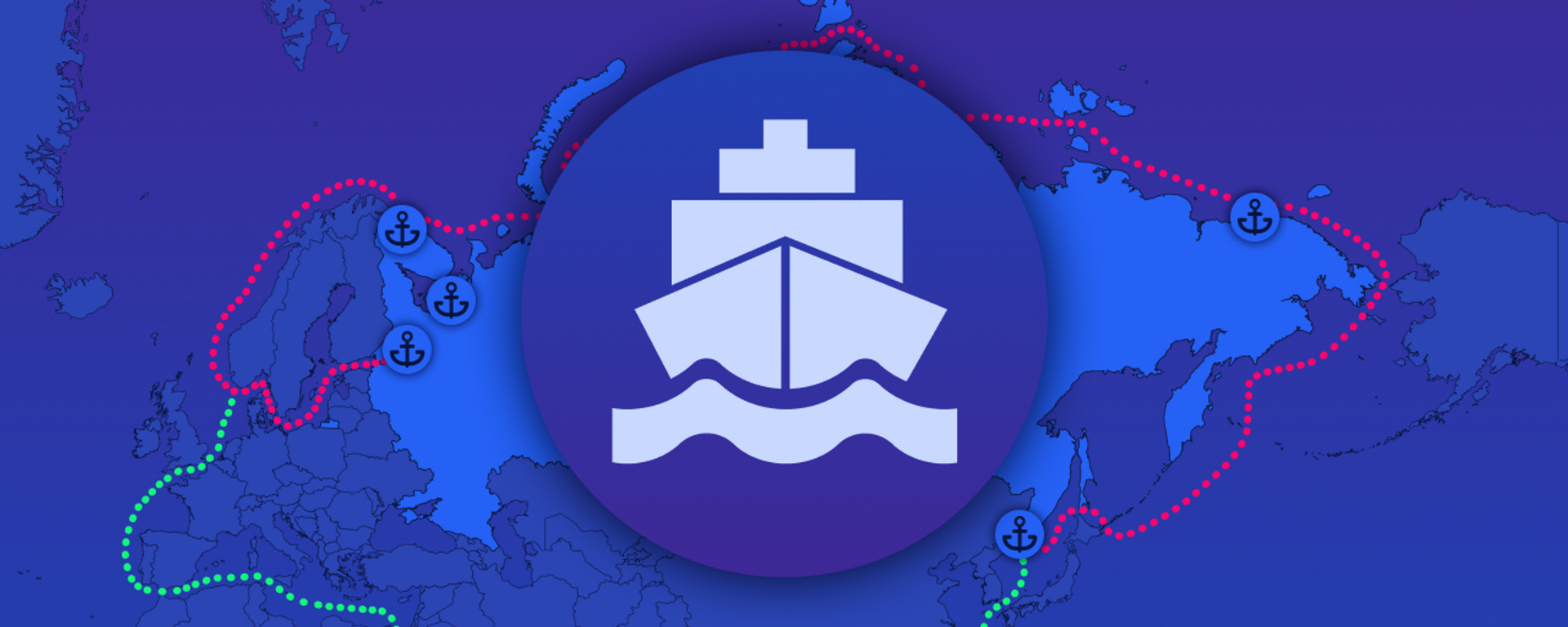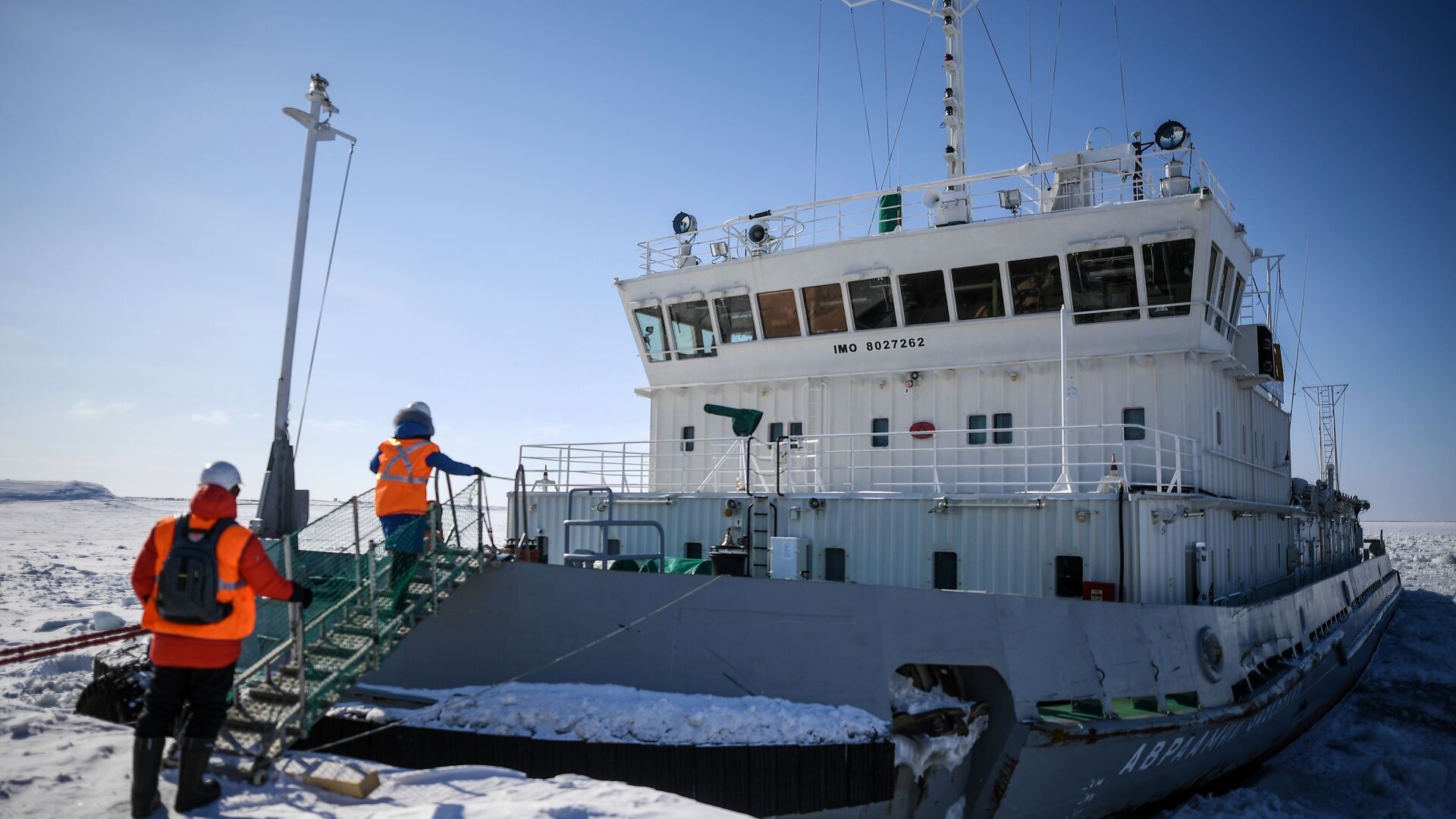https://sputnikglobe.com/20231216/russia-expects-freight-traffic-via-northern-sea-route-to-reach-50bln-tonnes-in-2024-1115623102.html
Russia Expects Freight Traffic Via Northern Sea Route to Reach 50Bln Tonnes in 2024
Russia Expects Freight Traffic Via Northern Sea Route to Reach 50Bln Tonnes in 2024
Sputnik International
Freight traffic along the Northern Sea Route via the Arctic is projected to grow from this year's 36 billion tonnes to 50 billion tonnes in 2024, with the infrastructure-related projects drawing interest of Chinese investors, Russian Deputy Prime Minister Yury Trutnev told Sputnik.
2023-12-16T10:58+0000
2023-12-16T10:58+0000
2023-12-16T10:58+0000
russia
yury trutnev
russia
china
northern sea route
suez canal
https://cdn1.img.sputnikglobe.com/img/07e5/06/0d/1083136894_0:133:3171:1917_1920x0_80_0_0_be79bce00a12377810154125009c0374.jpg
On Friday, the Russia-China Intergovernmental Commission on Cooperation and Development of the Russian Far East and Northeast China held a meeting of co-chairs in Beijing, where Russia was represented by Trutnev and China by Vice Premier Zhang Guoqing. "This year we plan to reach 36 million tonnes of freight traffic, or probably even a little bit more. Next year, we currently predict freight traffic to be about 50 million tonnes," Trutnev said. He also said that unlike the Suez Canal, the Northern Sea Route would not be rendered impassable by one ship stuck sideways. Trutnev also expressed hope that Chinese firms will be able to provide insurance for ships traveling along the Northern Sea Route, after Western countries stopped doing so. The Northern Sea Route is part of the Northeast Passage, which is a shipping route between the Atlantic and Pacific Oceans along the Arctic coast, connecting Europe and Asia.
https://sputnikglobe.com/20231019/northern-sea-route---key-to-global-trade-1114321168.html
russia
china
Sputnik International
feedback@sputniknews.com
+74956456601
MIA „Rossiya Segodnya“
2023
Sputnik International
feedback@sputniknews.com
+74956456601
MIA „Rossiya Segodnya“
News
en_EN
Sputnik International
feedback@sputniknews.com
+74956456601
MIA „Rossiya Segodnya“
Sputnik International
feedback@sputniknews.com
+74956456601
MIA „Rossiya Segodnya“
freight traffic, northern sea route, russian deputy prime minister yury trutnev
freight traffic, northern sea route, russian deputy prime minister yury trutnev
Russia Expects Freight Traffic Via Northern Sea Route to Reach 50Bln Tonnes in 2024
BEIJING (Sputnik) - Freight traffic along the Northern Sea Route via the Arctic is projected to grow from this year's 36 billion tonnes to 50 billion tonnes in 2024, with the infrastructure-related projects drawing interest of Chinese investors, Russian Deputy Prime Minister Yury Trutnev told Sputnik.
On Friday, the
Russia-China Intergovernmental Commission on Cooperation and Development of the Russian Far East and Northeast China held a meeting of co-chairs in Beijing, where Russia was represented by Trutnev and China by Vice Premier Zhang Guoqing.
"This year we plan to reach 36 million tonnes of freight traffic, or probably even a little bit more. Next year, we currently predict freight traffic to be about 50 million tonnes," Trutnev said.
He also said that unlike the Suez Canal, the Northern Sea Route would not be rendered impassable by one ship stuck sideways.
"The Northern Sea Route is also of great interest to our Chinese colleagues, in terms of infrastructure work. This interest is sparked by the fact that that there is a lot that needs to be done. It is necessary to build new icebreakers and escort vessels, create a satellite constellation, a system of stations of the Ministry of Emergency Situations there," the official said, summing up by saying that "a lot needs to be done to make the Northern Sea Route truly comfortable and safe."

19 October 2023, 17:55 GMT
Trutnev also expressed hope that Chinese firms will be able to provide insurance for ships traveling along the Northern Sea Route, after Western countries stopped doing so.
The Northern Sea Route is part of the Northeast Passage, which is a shipping route between the Atlantic and Pacific Oceans along the Arctic coast, connecting Europe and Asia.



